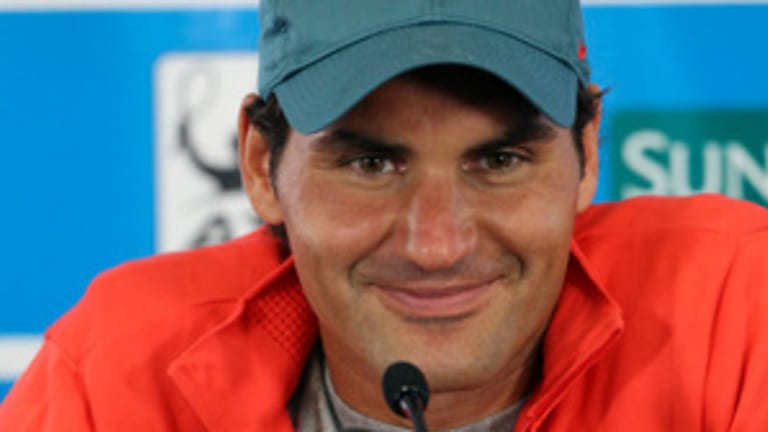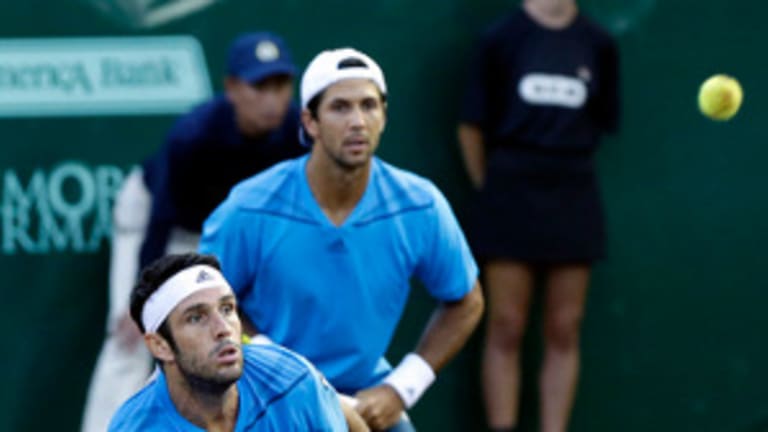This week, in light of the latest happenings in pro basketball, Richard Pagliaro and I wonder whether decisive leadership at the top will ever be possible for tennis.
**
What did you think of NBA commissioner Adam Silver's hammer-drop press conference on Tuesday, when he banned the L.A. Clippers' owner Donald Sterling for life? I thought it was a great moment. I had expected him just to suspend Sterling, but Silver went all the way, and made himself into a hero among the players. It's fashionable now to say that he was only doing "what had to be done," but I think a lot of people, like me, were surprised by the lifetime ban. In his first big decision, Silver, who hardly looks like anybody's idea of a lawman, nailed it.
For the moment, Silver appears to be a players', rather than an owners', commissioner. That's a big change from what we usually see in sports leagues. I wondered if any tennis players had been watching, and how they may have felt. The idea of creating a commissioner position has come up in tennis periodically over the years, but it has never gotten very far, mainly because the game is so split—between ATP, WTA, ITF, and the Grand Slams; between players and tournament directors—that it's hard to imagine a single person bridging those deep schisms and gaining the confidence of all of the sport's interest groups.
But this week we saw the benefit of a strong, single leadership voice, and a recognizable authority figure. Tennis has always had something of a void at the top; do you think a commissioner could help the sport, Richard? And if so, in what ways?

